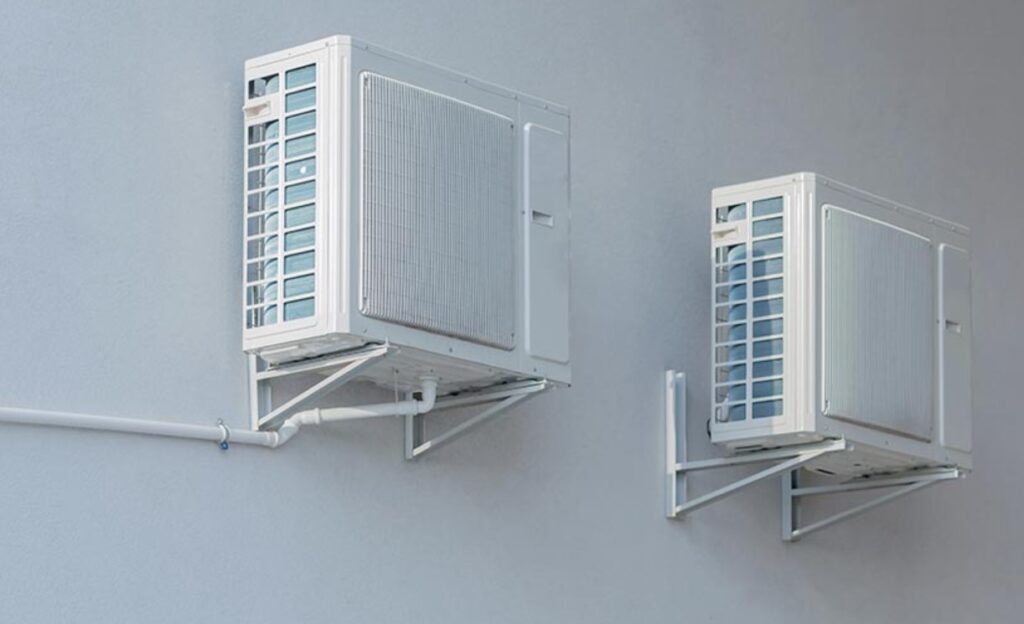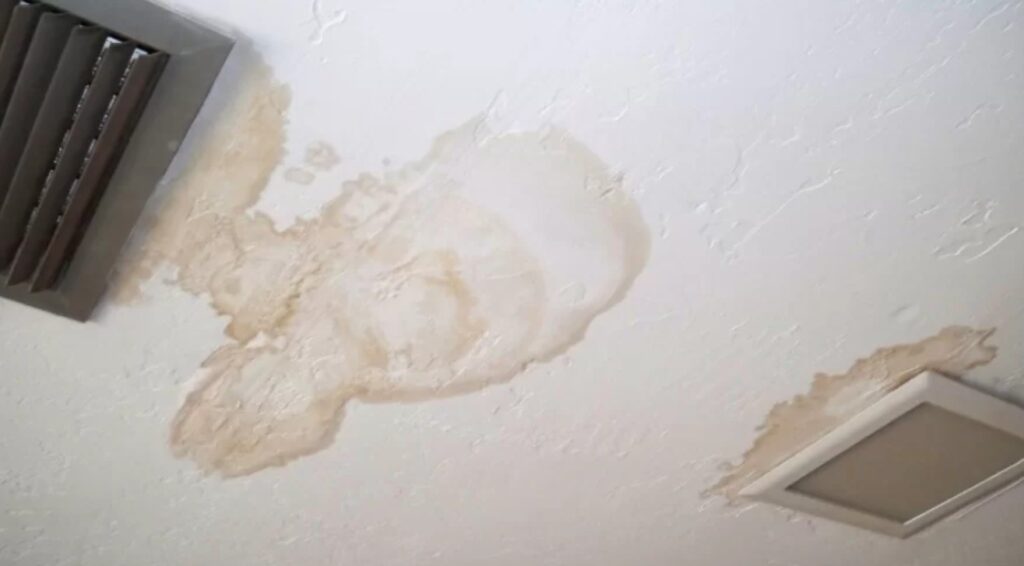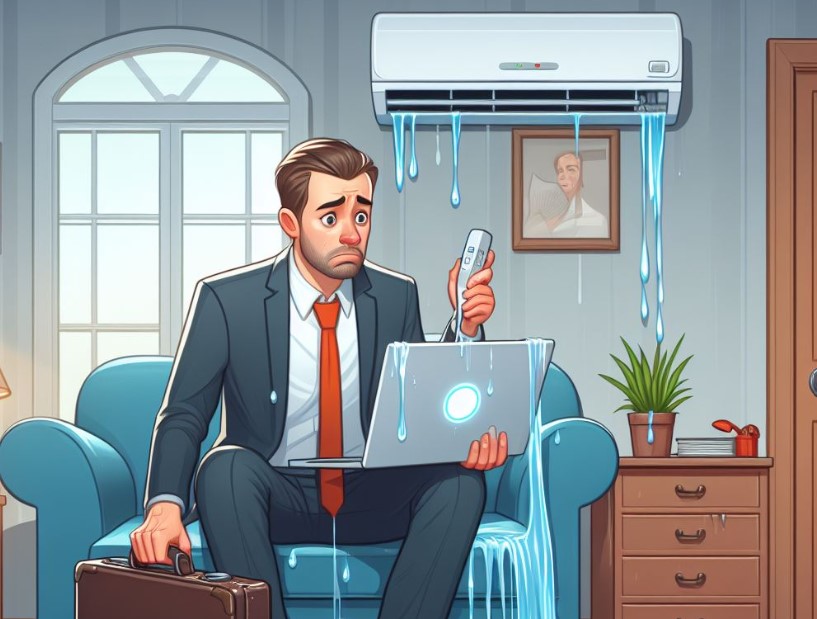This article will explain Should I File Insurance Claim For Water Damage From AC? This is not just a question of policy but also of practicality and financial consideration. Understanding your insurance coverage and weighing the pros and cons is essential in making an informed decision. Let’s delve into the aspects that need consideration before reaching out to your insurance provider.
Key Takeaways
- Evaluate the Extent of Damage: Assess whether the water damage is severe enough to justify a claim.
- Understand Your Insurance Policy: Know what your policy covers and the deductible amount.
- Consider Future Premiums: Filing a claim may affect future insurance premiums.
- Professional Assessment: Seek professional advice to evaluate the damage and repair costs.
- Document Everything: Keep a record of all damages and communications with the insurance company.
Should I File Insurance Claim For Water Damage From AC?
Yes, you should file an insurance claim for water damage from an AC if the damage is significant and caused by a sudden and accidental event. This coverage is typically included in standard homeowners insurance policies.

However, if the damage is minor or resulted from poor maintenance, it might be more practical to handle the repairs without filing a claim, considering your deductible and the potential impact on future premiums. Always review your specific policy and consult with your insurance agent for guidance tailored to your situation.
Understanding Your Homeowner’s Insurance Policy
Coverage for Water Damage
Your homeowner’s insurance policy plays a pivotal role in the decision-making process. Typically, policies cover sudden and accidental damage. However, the specifics can vary.
Exclusions and Limitations
It’s vital to be aware of any exclusions or limitations in your policy. Some policies may not cover AC-related water damage, or might only cover certain aspects of the damage.
Evaluating the Extent of Water Damage
When to File a Claim
The severity of the damage is a key factor. Minor leaks might not warrant a claim, while significant damage that affects the structure or electrical systems likely does.
Cost-Benefit Analysis
Comparing the cost of repairs to your deductible and potential premium increases is crucial. If repair costs are only slightly higher than the deductible, paying out of pocket might be more economical.
Impact on Future Insurance Premiums

Potential Increase in Premiums
Filing a claim can lead to increased premiums. It’s important to consider whether the immediate benefit outweighs the long-term cost.
Claim Frequency and Impact
Frequent claims can label you as high-risk, leading to even higher premiums or difficulty obtaining insurance in the future.
Seeking Professional Advice
Consultation with a Contractor
A professional contractor can provide a detailed assessment of the damage and repair costs, aiding in your decision.
Insurance Agent Consultation
Discussing the situation with your insurance agent can provide clarity on coverage and the implications of filing a claim.
Documentation and Record Keeping
Importance of Thorough Documentation
Maintaining detailed records of the damage, repair estimates, and communications with the insurance company is crucial for a successful claim process.
Organizing Documents
Keeping all relevant documents organized will streamline the claim process and support your case.
Does Insurance Cover Water Damage From AC Leak?
Insurance coverage for water damage from an AC leak largely depends on the specifics of your homeowner’s insurance policy. In general, most policies will cover the damage if it is sudden and accidental.

This means that if your AC unit unexpectedly leaks and causes damage to your floors, walls, or furniture, your insurance is likely to cover the repairs. However, if the leak is due to poor maintenance or normal wear and tear, insurance companies usually do not provide coverage.
It’s important to understand the distinction between sudden accidental damage and gradual damage, as insurance policies typically exclude the latter.
Does Homeowner Insurance Cover Air Conditioner Leaks?
Yes, homeowner insurance usually covers air conditioner leaks under specific conditions. If the leak is caused by a sudden and unforeseen event, such as a malfunctioning component or an unexpected breakdown, the resulting damage is typically covered.

However, if the leak results from negligence, like failing to maintain the AC unit, the insurance policy may not provide coverage. Additionally, the type of homeowner’s insurance policy and any specific exclusions or limitations also play a role in determining coverage. It is advisable to review your policy documents or consult with your insurance agent for clear understanding.
How Much Does Homeowners Insurance Cover For AC Leaks?
The coverage amount for AC leaks under homeowners insurance varies based on the policy limits and the specifics of the incident. Insurance policies have a coverage limit, which is the maximum amount the insurer will pay for a covered claim.
The actual amount covered also depends on the deductible, which is the out-of-pocket expense homeowners are responsible for before insurance coverage kicks in. For example, if the cost of repairing water damage from an AC leak is $5,000 and your deductible is $1,000, your insurance will cover $4,000.
It’s also essential to understand that luxury or high-value items might have separate coverage limits. Policyholders should review their coverage limits and consider any additional coverage needs for complete protection.
Conclusion
Deciding whether to file an insurance claim for water damage from an AC requires careful consideration. Balancing the severity of the damage, understanding your insurance policy, and contemplating the long-term financial implications are key. Remember to document everything and seek professional advice to ensure you make a well-informed decision.
People Also Ask
If My Claim is Denied, What Are My Options?
If your claim is denied, you can request a detailed explanation from the insurer. If you disagree with the decision, you can file an appeal or dispute the claim, sometimes involving a third-party mediator or seeking legal advice.
What Documentation is Required to File a Claim for AC Water Damage?
You’ll need to provide evidence of the damage (like photos or videos), a list of damaged items, repair estimates, and records of any temporary repairs you’ve made. Your insurer may also require a completed claim form.
How Long Do I Have to File a Claim After Discovering Water Damage?
The timeframe for filing a claim can vary, but it’s typically within a year of the incident. Check your policy for specific timelines and report the damage to your insurer as soon as possible.
What is the Typical Deductible for a Water Damage Claim?
Deductibles vary depending on your policy. Commonly, they range from $500 to $2,000. You’ll need to pay this amount out-of-pocket before insurance coverage applies.
Can I Repair the AC Water Damage Myself and Still File a Claim?
You can perform immediate repairs to prevent further damage, but it’s best to consult your insurance provider before undertaking significant repairs. Keep receipts and detailed records of any work done, as this will be important for your claim.
A multifaceted professional, Muhammad Daim seamlessly blends his expertise as an accountant at a local agency with his prowess in digital marketing. With a keen eye for financial details and a modern approach to online strategies, Daim offers invaluable financial advice rooted in years of experience. His unique combination of skills positions him at the intersection of traditional finance and the evolving digital landscape, making him a sought-after expert in both domains. Whether it’s navigating the intricacies of financial statements or crafting impactful digital marketing campaigns, Daim’s holistic approach ensures that his clients receive comprehensive solutions tailored to their needs.









